Some people always get stomach stuff, for others it’s bronchitis. Me? I lose my voice. Several times a year, sometimes when I’m sick, and sometimes even when I’m not, I lose my voice. I have laryngitis right now. I sound like Suzanne Pleshette with strep or Miley Cyrus with a head cold, depending on your generational pop-culture touchpoints. If you’re old enough, you may even think I sound a bit like Rula Lenska, evidently some kind of international TV star, but known to us 70s kids only from her ubiquitous commercials for Alberta VO5.
Whoever I sound like, I’m the unsexy version of them – the actual nurse’s uniform instead of the Halloween version. Plus, it’s annoying. I can’t respond when people greet me on the street. I can’t speak on the phone. In the age of COVID, people recoil when I rasp at them, assuming I’m a walking, if not talking, receptacle of death.
It’s funny that laryngitis is my go-to ailment, since my voice has always been my secret weapon.
Read More: The Incredible Shrinking Woman. Where Do Those Lost Inches Go?
The Good Voice
It all started in kindergarten, when I played Mother in a musical adaptation of The Carrot Seed. I still remember the lyrics to my solo line:
Mothers know so many things little boys like you can’t know,
So don’t be disappointed if your carrot doesn’t grow.
(Now there are lyrics you couldn’t get away with these days.)
I sang and performed all through school and summer theater camp.
I sang and performed all through school and summer theatre camp. I was a Witty Ditty singing telegram girl in high school, showing up at birthdays and anniversaries in my red-and-white-striped vest and black miniskirt to play a quick kazoo intro followed by such gems as this (to the tune of “Hey Look me Over”):
Hey, Harry Goldberg, Lend me an ear
I’m here to wish you a happy 50th Year!
Your kids all love you, your wife’s a babe
If only you hadn’t lost all your hair, you’d really make the grade!
I did shows in college, and then post-grad I worked a few years as a Bar Mitzvah band singer in Paris, singing in Hebrew, French, Arabic, and English. A tall blond with big hair, big earrings, and a band wearing gold lamé jackets.
So, yeah. Quality career.
Putting the Voice on Ice
After my Bar Mitzvah band years, I stopped singing – except to my kids. But I could still open my mouth and wow ‘em at kiddie music class. When I sang in synagogue, people looked around to see where “that voice” was coming from. When I sang karaoke at a summer writer’s conference, Billy Collins, then the first poet laureate of the United States, came up to me afterwards and said “Wow! Where did THAT come from?” If I told people I was a singer, they’d have been unimpressed, but when they knew me as a writer, or a mom, they thought my voice was incredible. Expectations were low, so I exceeded them.
But a funny thing happened on the way to menopause: I lost my voice.
For more than 50 years, I opened my mouth to sing and I knew that something beautiful would come out.
I knew I’d become invisible as I aged. It’s partly biological: I’m no longer a potential procreative partner. It’s also cultural: our society values youth and beauty above all else. How else do we explain that everyone still knows who Marilyn Monroe is, but you’re going to have to look up Gertrude Elion? But losing my voice? It never crossed my mind. For more than 50 years, I opened my mouth to sing and I knew that something beautiful would come out. Not incredible. I was no Adele. But I was dependably, consistently good. Better than good. And I knew it. I used it.
In school, my singing voice was the gateway to my finally making friends with the drama kids. In my 20’s, singing was a great dating tool. (I don’t refer to my years in Paris as my time “as a broad” for nothing.) Later, as a married woman, when my twins were fussy, I had an endless cache of Jazz-classics to draw on as lullabies to calm them. (For his fourth-grade play audition, my son sang Gershwin’s Love Walked In. I’m guessing it wasn’t a popular choice among his 10 year old peers.) Had I thought about it, I probably would have realized that voices change and fade as people age. All you have to do is listen to young Frank Sinatra next to the old version to know that. But I didn’t think about it. It was unthinkable.
Until it wasn’t.
Who Can Hear Us Now?
Now that I’ve gone through menopause, my skin is no longer tight, my eyelashes no longer thick, my sex drive is but a vague shadow of its former self. I think every cop I see on the street looks 12. (Although when my own kids were 12, they took offense at my constantly saying people looked like they were 12. “What’s wrong with being 12?” they wanted to know.) A lot about me has changed.
Why on earth am I surprised that my voice isn’t what it used to be either?
I can still sing, but it isn’t the same. My voice is thinner, I have less range, less control. The rare times when I sing, alone at home or in the car, it comes as a shock. Whose voice is that? My kids are too polite to say anything, but I’ve seen the look they give each other when I squeak out the prayers over the candles on the rare Friday night when we’re all home and we share a Shabbat meal. (At which, just to be honest, I may serve shrimp. So sue me.) They can hear the difference between young mom and old mom. They know.
When we’re middle aged, we have a brief window: still vibrant enough to be appealing, old enough to be experienced, our looks dulled enough to be neither a distraction nor a threat.
When we are young, women aren’t taken seriously precisely because we are young. What do we know? We’re inexperienced. When we’re a bit older, even if we do start getting some respect, it’s tinged by the assumption that we will be sidelined by babies, that we’ll step off the fast track to success.
When we’re middle aged, we have a brief window: still vibrant enough to be appealing, old enough to be experienced, our looks dulled enough to be neither a distraction nor a threat. That’s the best time. Our confidence soars. People listen to us. We can still see ourselves represented on TV as people who have love lives and careers. That window closes fast. And when it does, suddenly, the only version of ourselves we see in the media is as the wacky neighbor or grandma who lends comic relief when she makes a hilariously clueless comment about The TikTok.
We realize, we are the same age as all those actors in Cocoon, on the Golden Girls! We get used to being ignored in workout classes, dismissed by salespeople, offered seats on crosstown buses. We can even find some comfort in it. When no one’s looking, we can do as we please.
But once we cross the line into being older women, it becomes clear that it’s not just our bodies that don’t register: our opinions don’t either. It’s not just that no one sees us anymore, no one hears us either. Or at least no one listens.
Our thoughts on pop culture are irrelevant. Our opinions of workplace matters devalued. Our chances of landing a job diminish greatly. Our (rightful) insistence on the utter ridiculousness of full-face makeup, contour, and highlighting on 20-something girls who need nothing more than a swipe of lip gloss to glow like a moonbeam and have cheekbones for days is met with “OK Boomer” eyerolls so intense they may cause brain issues.
What do we know? We’re old and out of touch.
Cruel Timing
The irony isn’t lost on me: I’ve lost my voice just when I’ve, well, lost my voice. My repeated laryngitis is my body’s oh-so-unsubtle way of bringing the metaphor to life.
“How did this happen?” is a feeling I’m used to when I look in the mirror. I’m still me. I still look like myself, just not the self I once was. I’m not hideous, I’m just no longer considered by society to be worthy of its notice. My voice is the same: no one is going to stop up their ears when I sing, but neither are they turning around to find out who’s singing. Age has taken away my secret weapon. Not only has society stopped listening, biology has made me less worth listening to.
On the page, however, I can still be heard. On the page I can be loud, and funny, and profane. On the page, people listen. The page is where people—mostly women—still want to hear what a late-50-something menopausal woman has to say. On the page, my looks don’t matter, my laryngitis counts for nothing. When I write, I’m still my-Bar-Mitzvah-band self: holding the mic firm, hair high, skirt short, voice true, and strong. Turns out, it takes more than menopause to shut me up.
Read More: The Great Disappearing Act: Why Are My Lips Getting Thinner?

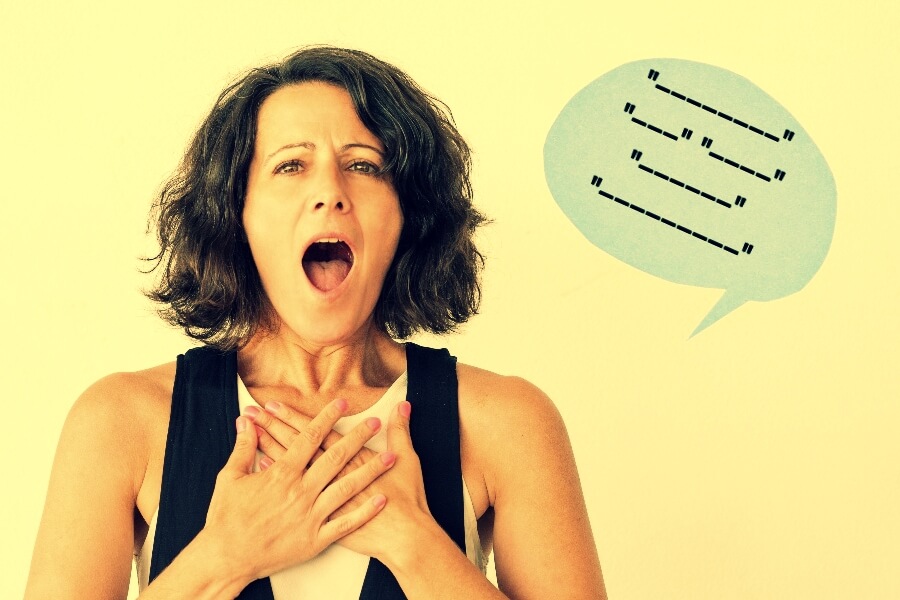
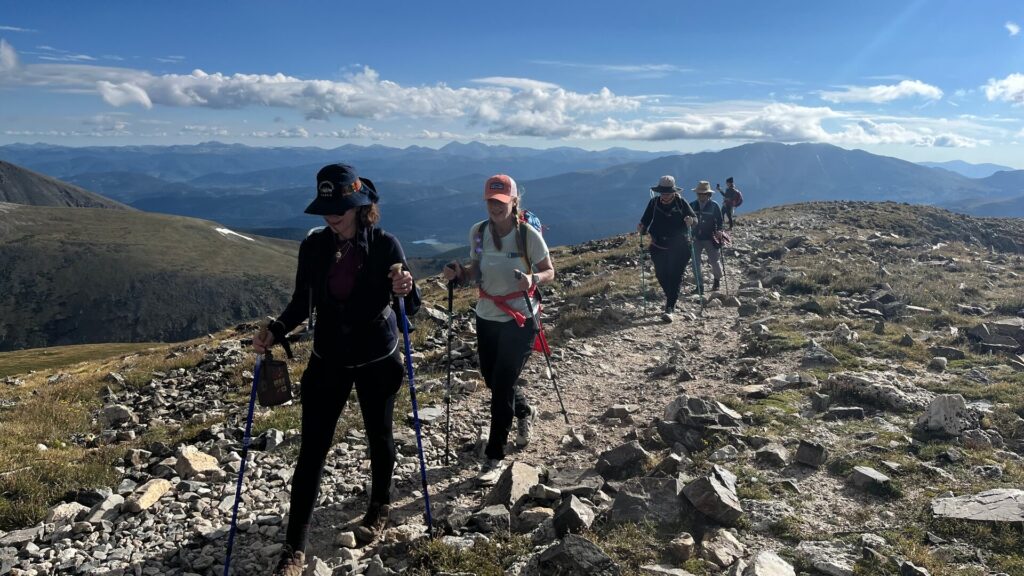








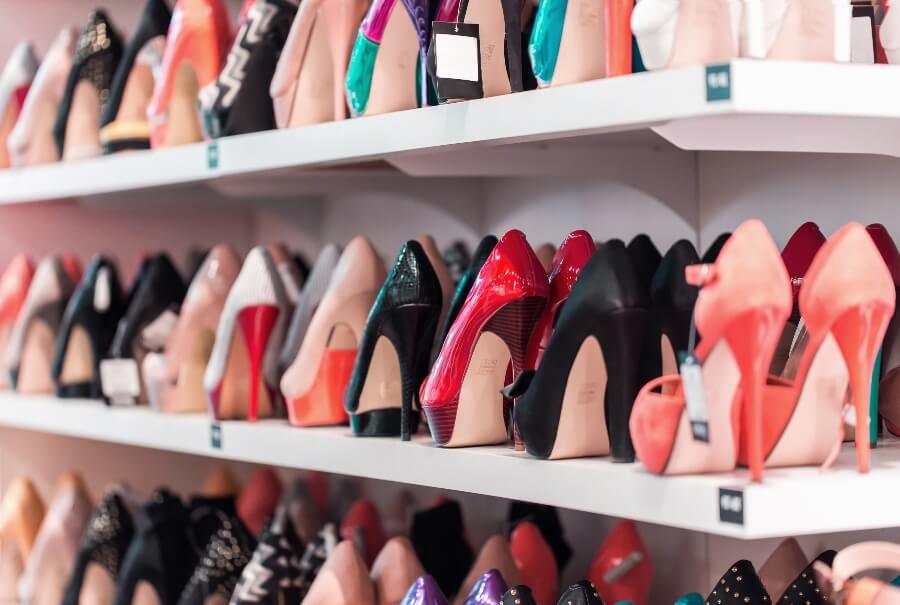


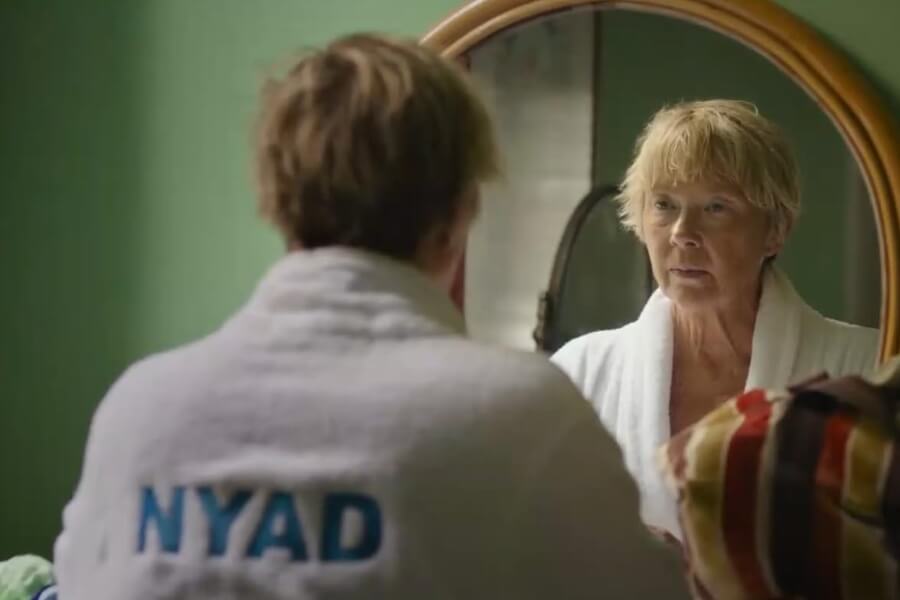
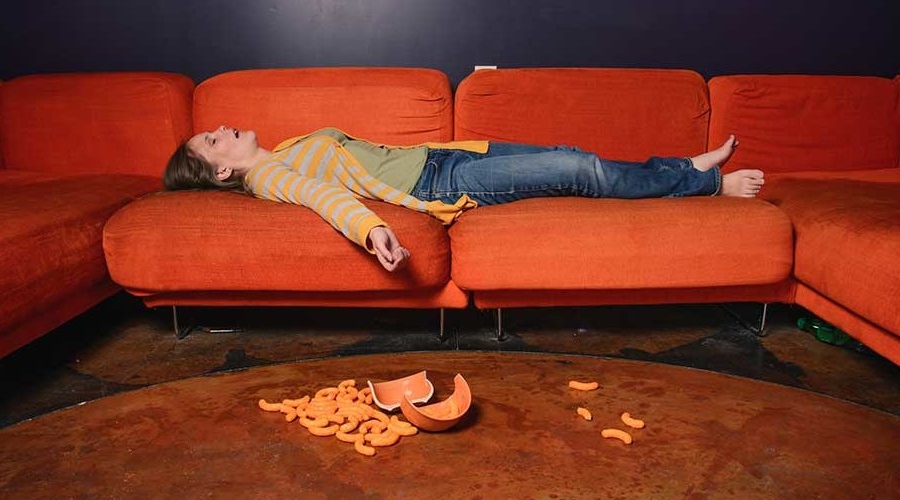
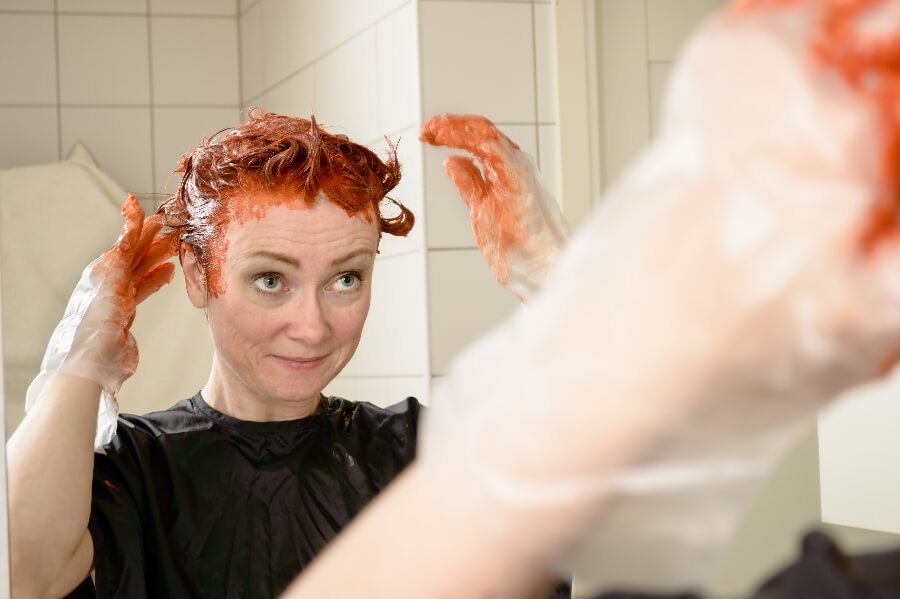
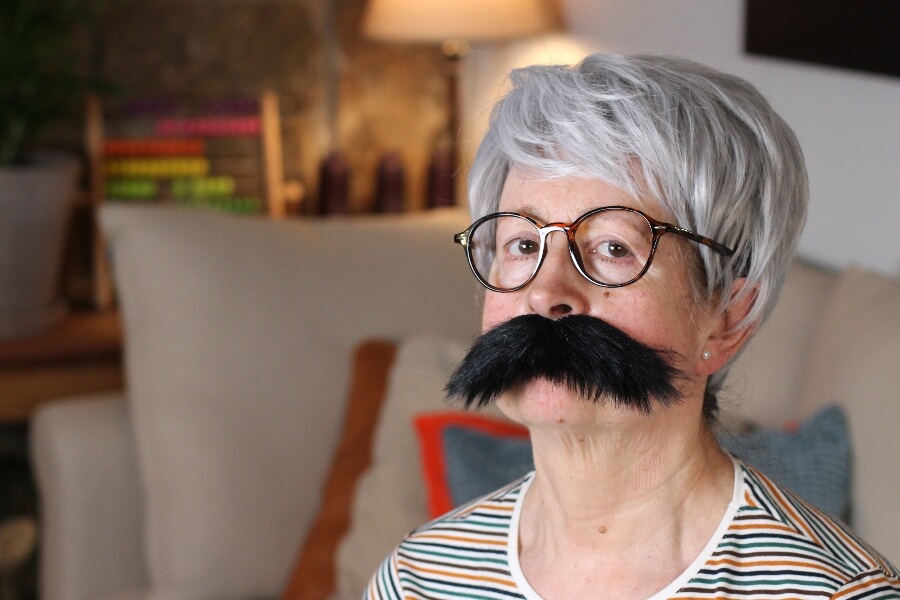

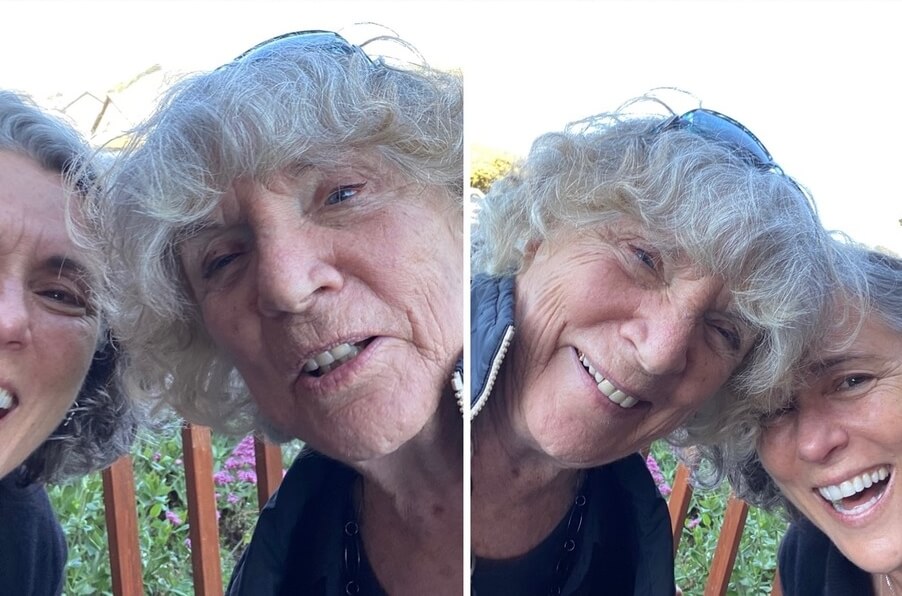
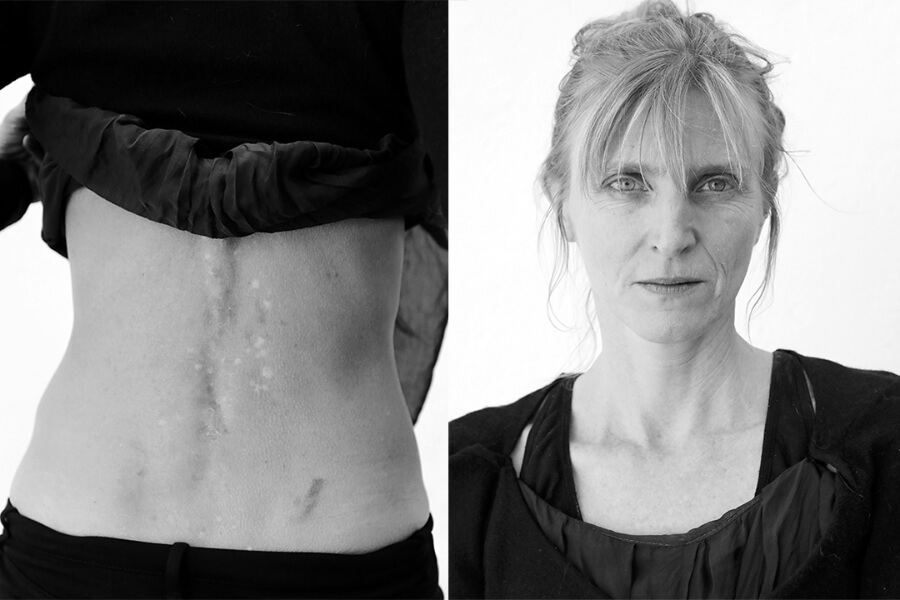
0 Comments